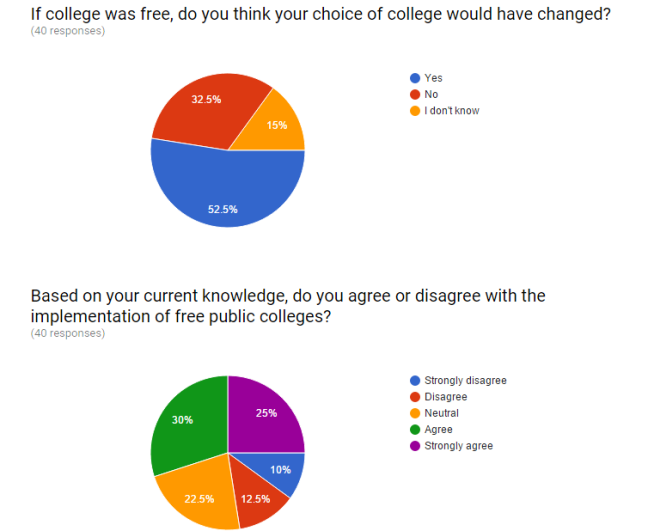Free college is a prevalent issue that one would think the candidates would debate a lot about because the candidates are trying so hard to gain millennial vote as they will make up a huge portion of the votes in this year’s election.
However, when you take a look at how much is actually discussed about this issue, you see that it is hardly ever brought up. Of course, all of the issues that are debated about are extremely important and should have the amount of screen time that they do. But ignoring higher education is like ignoring our generation’s future. If many of us don’t have access to quality education because financials inhibit us from doing so, then what will happen to our generation?
If we look at Democrats versus Republicans, we see that Democrats were more likely to address this issue than Republicans. Also, in debates, Democrats were more likely to be asked a question near this than Republicans. Democrats are also more vocal about this than Republicans.
But if we ignore all this, comparing what the Republicans have said with what the Democrats have said, we see that Democrats are all for free college, while Republicans had different methods of subsidizing college.
- Bernie Sanders wants to tax Wall Street speculators and expand financial aid through that funding as well as lower student loan rates.
- Hillary Clinton has some $350 billion plan that requires the student to work for at least 10 hours a week to qualify, but she did not go anymore in depth into what the rest of the plan was.
- Marco Rubio wanted people to invest into students’ futures, and when the students graduate, they must pay the investors 4% of their income for 10 years.
- Ted Cruz wants to get rid of the Board of Education.
- Donald Trump agrees that the government should no profit off students, but did not go in depth as to how he plans to reform the system.
- .Ben Carson said he would do something about student loans, but does not have an exact plan on how he plans to reform the system.
- John Kasich wanted to base funds on state-performance: the better your state does in school, the more funding you get.
As we can see, there are only a couple candidates who actually have plans that pertain to this issue, while the rest kind of just push it aside and mention that they are for things, but have no plan.
As important as immigration, terrorism, unemployment and all are all important, we are also important because we are the future. The country will be in our hands some day and higher education is something that is very valuable for the benefit of our futures. When will we, the millennials, be taken seriously and be looked at as people who will and can keep this country “great”?
 (
(

